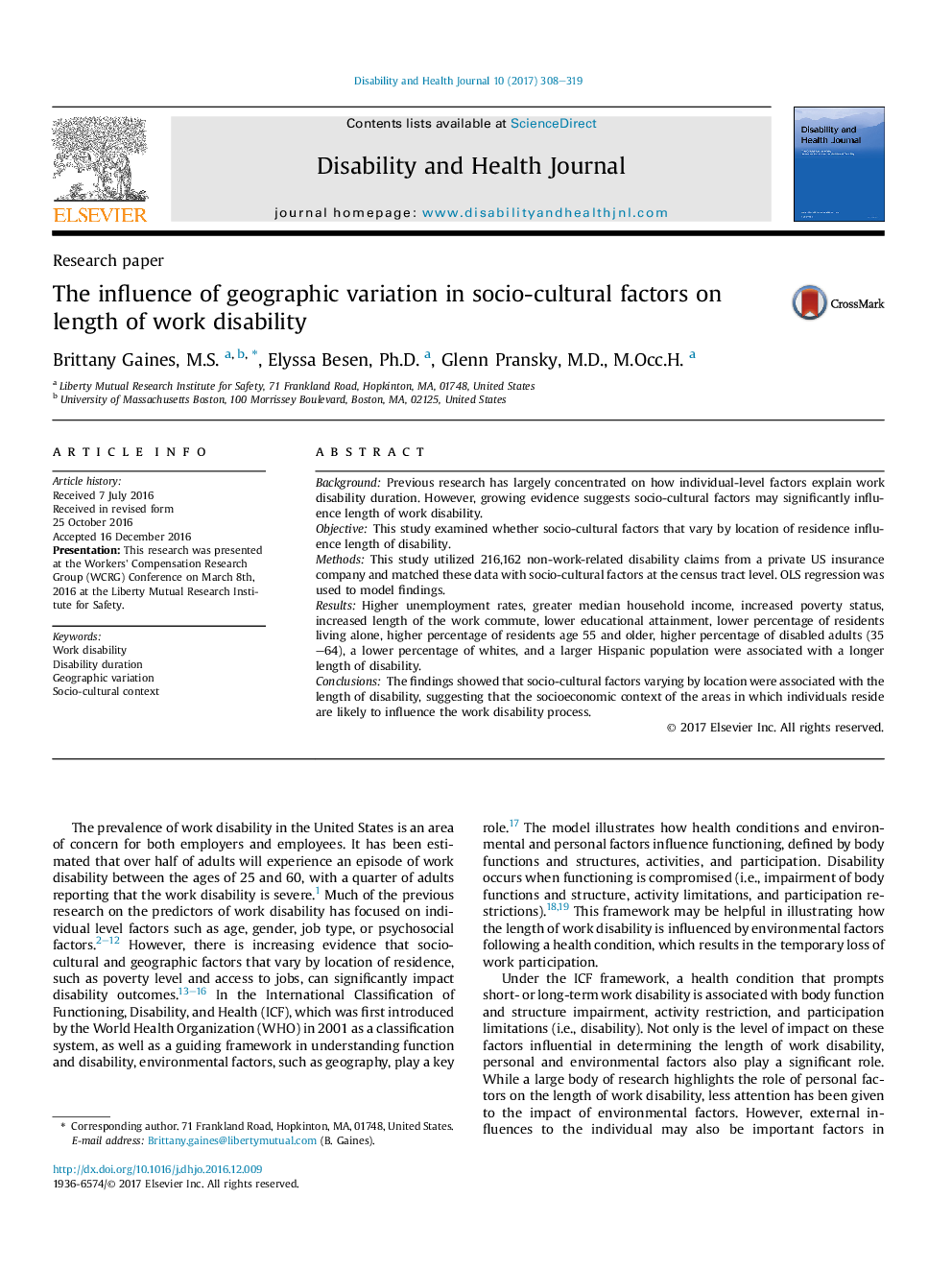| Article ID | Journal | Published Year | Pages | File Type |
|---|---|---|---|---|
| 5723207 | Disability and Health Journal | 2017 | 12 Pages |
BackgroundPrevious research has largely concentrated on how individual-level factors explain work disability duration. However, growing evidence suggests socio-cultural factors may significantly influence length of work disability.ObjectiveThis study examined whether socio-cultural factors that vary by location of residence influence length of disability.MethodsThis study utilized 216,162 non-work-related disability claims from a private US insurance company and matched these data with socio-cultural factors at the census tract level. OLS regression was used to model findings.ResultsHigher unemployment rates, greater median household income, increased poverty status, increased length of the work commute, lower educational attainment, lower percentage of residents living alone, higher percentage of residents age 55 and older, higher percentage of disabled adults (35-64), a lower percentage of whites, and a larger Hispanic population were associated with a longer length of disability.ConclusionsThe findings showed that socio-cultural factors varying by location were associated with the length of disability, suggesting that the socioeconomic context of the areas in which individuals reside are likely to influence the work disability process.
